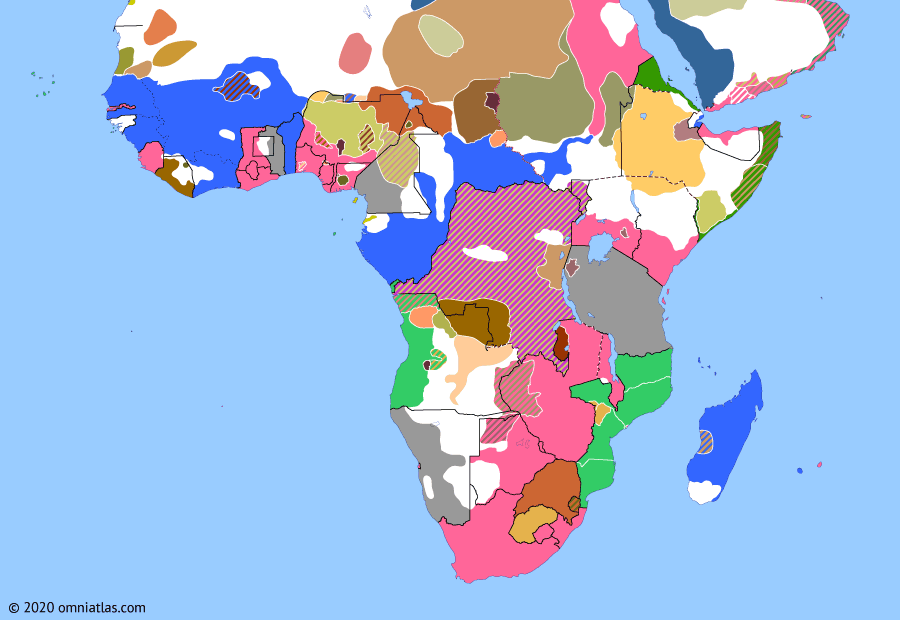Sub-Saharan Africa 1898: Fashoda Incident

19 September 1898
19 Sep 1898
Fashoda Incident
26 Oct 1896 Treaty of Addis Ababa
13 Jul 1897 Batetela Rebellion
8 Apr 1898 Battle of Atbara
19 Sep 1898 Fashoda Incident
17 Jul 1899 Voulet–Chanoine and Rabih
17 Dec 1899 Second Boer War
5 Jun 1900 Invasion of the Boer Republics
23 Aug 1901 Lake Chad Rendezvous
31 May 1902 Treaty of Vereeniging
5 Feb 1903 Pacification of Northern Nigeria
25 Oct 1903 Somaliland Campaign
11 Jun 1904 Herero Wars
19 Sep 1905 Maji Maji Rebellion
12 Feb 1906 Conquest of the Sahara
6 Dec 1907 Consolidation of Ethiopia
15 Nov 1908 Belgian Congo
31 May 1910 Union of South Africa
4 Nov 1911 Neukamerun
14 Mar 1913 French invasion of the Tibesti
1 Jan 1914 Amalgamation of Nigeria
In July 1898, while the British were fighting the Mahdists in northern Sudan, a French force crossed into southern Sudan and occupied the strategic settlement of Fashoda. After defeating the Mahdists at Omdurman in September, the British hurried south to confront the French. The standoff triggered a crisis in Europe, with both nations preparing for war, but eventually France backed down and recognized Anglo-Egyptian rule in Sudan.